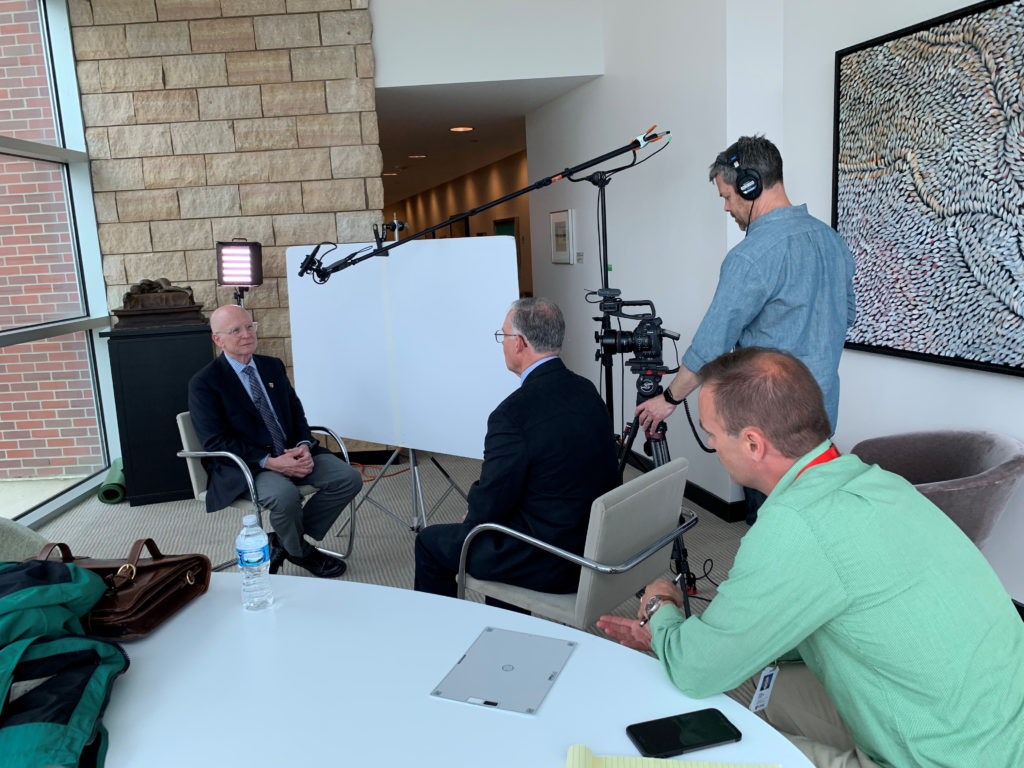
UNMC Department of Psychiatry Chair Dr. Howard Liu has a strong interest in capturing the history of the department. To catalog the past century of behavioral health at UNMC, the department and the McGoogan Library of Medicine will film current and former members of the psychiatry department sharing oral histories of their time at UNMC.
The initial focus is to capture oral histories and in 2019 the committee interviewed Drs. William Burke, Mark Fleisher, Don Swanson, and Reba Benschoter.
Dr. William Burke, who worked at UNMC from 1987-2014, was the first former faculty member to be interviewed. Dr. Carl Greiner, who worked with Dr. Burke for more than two decades, did the interview on May 28. The interview in its entirety will be available later this summer.
During the interview, Dr. Burke, who specializes in geriatric psychiatry and the study of Alzheimer’s Disease research, talked about how geriatric psychiatry was a new concept in 1987.
“When I came back to UNMC (in 1987), it was an interesting time. There really weren’t any geriatric psychiatrists in Omaha,” Dr. Burke said.
During his time in geriatric psychiatry, Dr. Burke has worked with Dr. Susan Scholar, Dr. William Roccaforte as well as current geriatric psychiatrists Dr. Steven Wengel and Dr. Thomas Magnuson.
Along with conducting an oral history, Dr. Burke also presented a grand rounds presentation on “Can Alzheimer’s Disease Be Prevented?” Dr. Burke is the director of the Stead Family Memory Center and Banner Alzheimer’s Institute at the University of Arizona College of Medicine.
When asked if there have been any significant breakthroughs in Alzheimer’s Disease research, Dr. Burke admitted there hadn’t been many “breakthroughs in the past three decades.” Despite that, he remains optimistic, and he has no regrets about his career in geriatric psychiatry.
“I think it is a privilege to work with older patients in general and people who have memory problems in their family. Alzheimer’s is such a difficult illness, and it’s so important for them to talk to someone who understands the illness. To be able to talk to someone who can help manage the illness is incredibly therapeutic to the patient and family. We can’t cure the illness but we can manage it, and that brings a lot of hope to families and helps keep them going.”